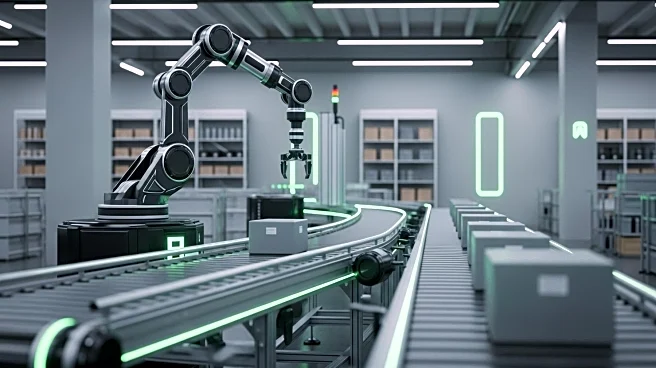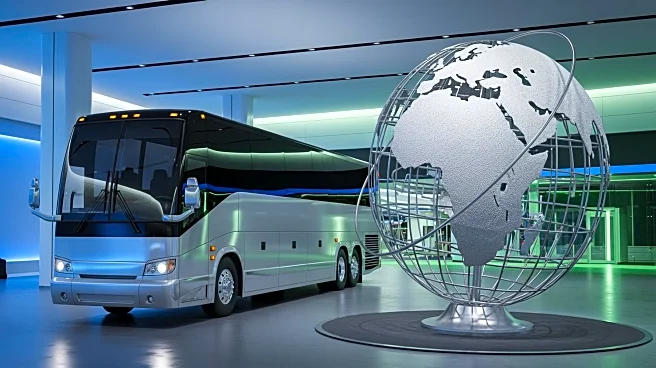What is the story about?
What's Happening?
A recent study by Inteq highlights the growing importance of warehouse automation in the retail sector, with 88% of senior retail and ecommerce leaders recognizing its potential to enhance sustainability. The research, titled 'Fit for Growth,' outlines several benefits of automation, including improved energy efficiency, reduced waste, better space utilization, and lower transportation emissions. These advancements are crucial as the demand for warehouse space increases, driven by the growth of online retail. The study also notes that older warehouses, lacking modern energy efficiency, may become unlettable due to upcoming EPC regulations. Additionally, automation is seen as a key driver of customer experience, with 87% of respondents agreeing that robotics and automation can enhance fulfilment operations.
Why It's Important?
The findings underscore the strategic role of automation in helping retailers meet ambitious net zero targets by 2040. As ecommerce continues to expand, the need for efficient and sustainable warehouse solutions becomes more pressing. Automation not only addresses space constraints but also improves customer satisfaction, making it a critical investment for retailers. The study suggests that AI and Machine Learning will be pivotal in reshaping logistics, particularly for omnichannel retailers. This shift towards automation and advanced technologies is expected to drive productivity gains, cost reductions, and labor savings, positioning retailers to better navigate future challenges.
What's Next?
Looking ahead, the report identifies several emerging trends that could further transform logistics, including advanced sensors, blockchain for supply chain, collaborative robots, and drone deliveries. The integration of these technologies is essential for maximizing efficiency and sustainability in warehouse operations. Scott Merrick, managing director at Inteq, emphasizes the importance of a holistic approach to automation integration, warning against piecemeal strategies. As retailers adapt to these changes, collaboration between different technologies and systems will be crucial for achieving optimal results.
Beyond the Headlines
The push for warehouse automation reflects broader shifts in the retail industry towards sustainability and efficiency. As companies strive to meet environmental goals, the integration of advanced technologies becomes a necessity rather than a choice. This trend also highlights the evolving role of technology in enhancing customer experience, as automation moves from a back-end efficiency tool to a strategic imperative. The focus on AI and Machine Learning indicates a future where data-driven insights will play a central role in logistics and supply chain management.

















